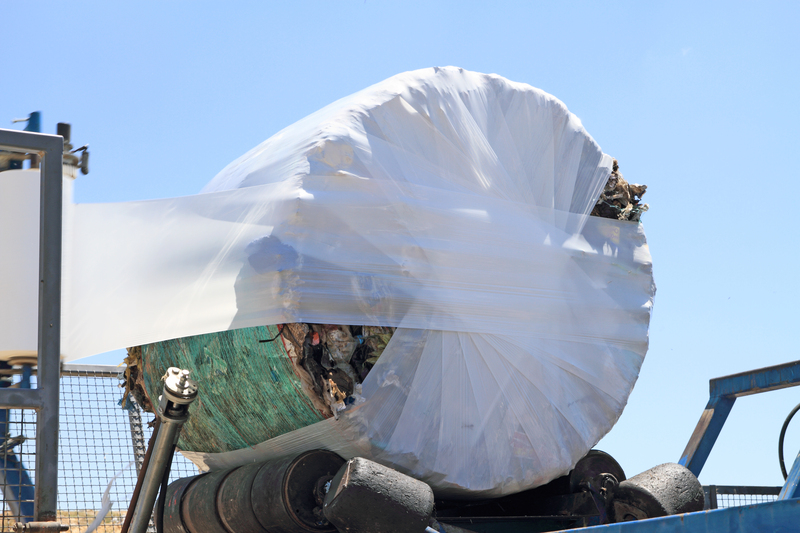In recent years, there has been a growing concern over the amount of waste produced globally and its negative impact on the environment. The United Kingdom (UK) has taken significant steps towards reducing waste and promoting recycling, making it a leader in sustainable waste management. In this article, we will delve into the UK's approach to recycling and how it is tackling waste effectively.
The Current State of Waste in the UK
According to a report by the Department for Environment, Food and Rural Affairs (DEFRA), the UK produces approximately 221 million tonnes of waste each year, with household waste contributing to about 27% of this total. This high number of waste production not only puts pressure on landfills but also contributes to air and water pollution, greenhouse gas emissions, and biodiversity loss.
Recognizing the need for urgent action, the UK government has set ambitious targets to reduce waste and increase recycling rates. By 2020, they aim to recycle at least 50% of household waste and achieve zero avoidable waste by 2050. Let's take a look at some of the strategies that have been implemented to achieve these targets.

Promoting Recycling through Legislation
One of the key approaches adopted by the UK government is implementing legislation to promote recycling. The Waste Framework Directive sets out rules for managing waste in a way that protects human health and the environment. It also requires member states to minimize their waste production and encourage reuse, recycling, and recovery.
To support these directives, the UK government has introduced several laws such as the Waste Regulations and Packaging Regulations, which require businesses to adhere to strict packaging and waste management standards. They have also made it mandatory for local authorities to provide households with separate bins for different types of recyclables.
Encouraging Public Participation
Apart from legal measures, the UK government has also undertaken various initiatives to encourage public participation in recycling. The "Recycling on the Go" campaign aims to promote recycling in public spaces such as parks, streets, and transportation hubs. Additionally, educational programs have been implemented to raise awareness about the importance of recycling and how it benefits the environment.
The government has also worked closely with businesses to encourage them to incorporate sustainability into their operations. Through various schemes and incentives, businesses are encouraged to use sustainable materials, reduce their waste production, and increase their recycling efforts.
The Pros and Cons of the UK's Recycling Approach
Pros:
- The UK's legislation and initiatives have led to a significant increase in recycling rates, with almost 45% of household waste being recycled in 2018.
- Recycling helps to conserve natural resources by reducing the need for raw materials.
- It reduces the amount of waste sent to landfills, which can lead to pollution and greenhouse gas emissions.
Cons:
- Setting up infrastructure for recycling can be expensive and may require significant investment from both the government and private sectors.
- Some critics argue that focusing solely on recycling may distract from the bigger issue of reducing waste production.
Tips for Effective Recycling
To make a positive impact through recycling, here are some tips that you can follow:
1. Know what can be recycled: Educate yourself on what items can be recycled in your area, as these may vary depending on where you live.
2. Clean and sort your recyclables: Make sure to rinse out any food or liquid residue from items before putting them in your recycling bin. Sort different types of recyclables into separate bins if possible.
3. Use reusable items: Consider using reusable alternatives instead of single-use items whenever possible.
4. Reduce your overall waste: Be conscious of your consumption habits and try to reduce your overall waste production.
5. Support businesses with sustainable practices: Choose to support companies that are working towards sustainable and environmentally friendly practices.

Key Takeaways
- The UK has implemented legislation and initiatives to promote recycling and reduce waste.
- Public participation is encouraged through educational programs and campaigns.
- Recycling helps to conserve resources and reduces pollution.
- It is important to educate yourself on what can be recycled and reduce your overall waste production.
In Conclusion
The UK's approach to recycling has been successful in increasing recycling rates and promoting sustainable waste management. While there may be some challenges, the benefits of recycling cannot be ignored. As individuals, we can all do our part by being conscious of our actions and making small changes that contribute towards a greener future for generations to come. Let us all make a conscious effort to tackle waste and protect our planet.
